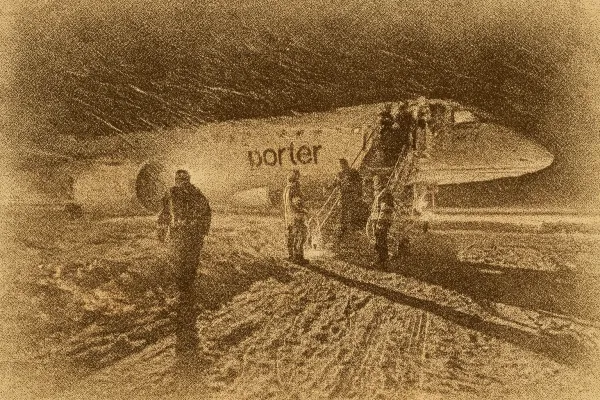Based on coverage from CBC, Castanet, and InfoNews.
Air Traffic Controller Shortage Affects Canadian Airports
If you've been flying through Kelowna or Winnipeg lately, you might have noticed some unexpected delays. The culprit? A shortage of air traffic controllers. According to a memo sent to Air Canada pilots, these two airports have had to close their air traffic control towers when the lone controller on duty takes a break. This isn't just a local issue—it's part of a broader North American trend affecting air travel.
Nav Canada, the organization responsible for managing Canada's air navigation system, has confirmed these temporary closures. They say the measures are precautionary, aimed at ensuring the safety and well-being of their employees. The closures are planned during low-traffic periods to minimize disruption, but they still pose challenges for airlines and passengers alike.
Support The Canada Report and help keep it ad-free and independent — click here before you shop online . We may receive a small commission if you make a purchase. Your support means a lot — thank you.
Nav Canada's Response to Staffing Challenges
Nav Canada has been upfront about the staffing issues, stating that they are working hard to recruit and train new air traffic controllers. Over the past two years, they've added more than 450 air traffic services professionals, including 240 new controllers. However, training isn't a quick process—it takes 20 to 27 months to become an air traffic controller and 10 to 18 months for a tower controller. With nearly 500 students currently in training, Nav Canada is clearly in "solution mode," as they put it.
The organization has also implemented a Fatigue Risk Management System to ensure that controllers can take necessary breaks without compromising safety. This system is part of their broader effort to maintain high safety standards while addressing the staffing shortfall.
Impact on Airlines and Passengers
For airlines like Air Canada, these closures mean added complexities. Flights may require additional fuel to account for potential delays or diversions. Tim Perry, president of the Air Line Pilots Association in Canada, has emphasized the need for stability, noting that the ongoing shortages lead to delays at various airports across the country.
Passengers, too, are feeling the effects. While Nav Canada and airports like Kelowna International are doing their best to mitigate the impact, occasional delays are likely to continue until more controllers are available. Kelowna's director of operations, Phillip Elchitz, has acknowledged that the situation is challenging but assures that safety remains the top priority.
In short, while Nav Canada is making strides in addressing the shortage, the path to a fully staffed air traffic control system is a long one. Until then, patience and flexibility will be key for travellers navigating Canada's skies.








